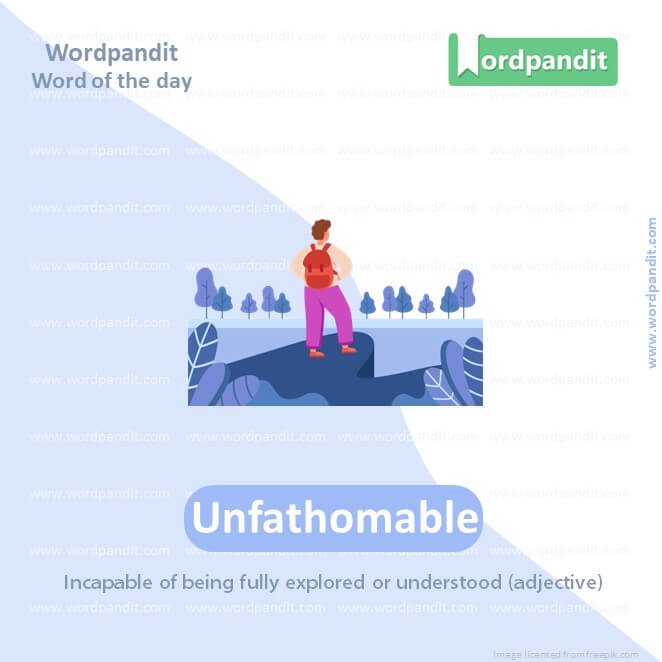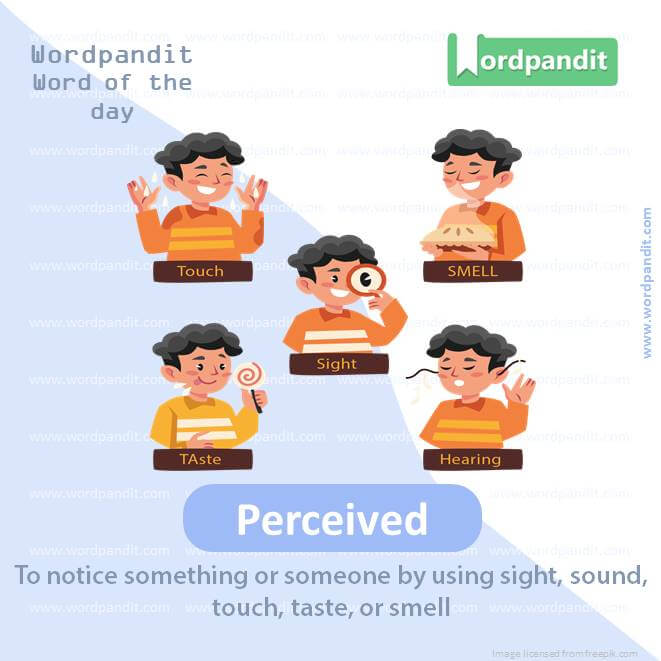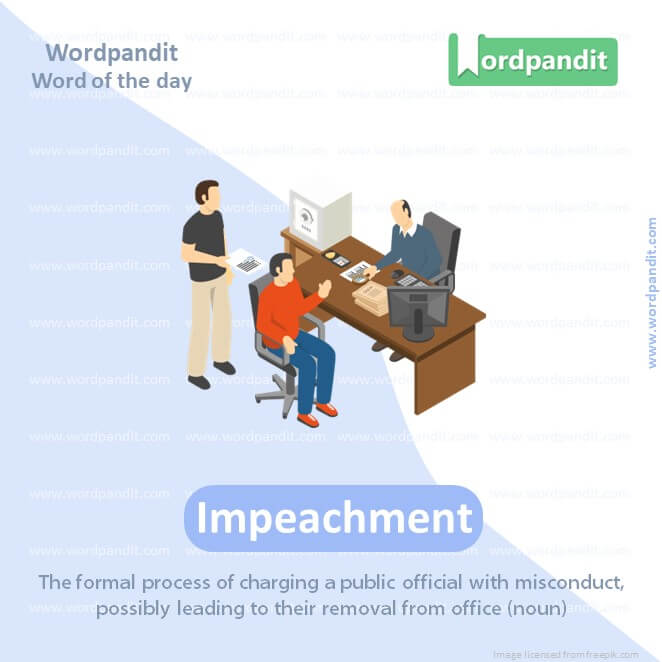Daily Vocabulary Words: List of Daily Used Words in Leading International Newspapers
Hi there. Welcome to this special section @ Wordpandit.
Our endeavour here is very simple: to highlight important daily vocabulary words, which you would come across in leading newspapers in the country. We have included the following newspapers in our selection:
• The New York Times
• The Washington Post
• Scientific American
• BBC
• The Guardian
• Psychology Today
• Wall Street Journal
• The Economist
We are putting in extensive work for developing your vocabulary. All you have got to do is be regular with this section and check out this post on a daily basis. This is your repository of words that are commonly used and essentially, we are posting a list of daily used words. Hence, this has significant practical application as it teaches you words that are used commonly in leading publications mentioned above.
Visit the website daily to learn words from leading international newspapers.

WORD-1: Complacent
CONTEXT: The wars in both Gaza and Ukraine should remind complacent Western leaders that our adversaries do not share our liberal values and, thus, are much less casualty-conscious than Western militaries are.
SOURCE: Washington post
EXPLANATORY PARAGRAPH: Imagine feeling really happy and comfortable in your cozy bed and not wanting to get up, even if there are fun games to play outside. That’s how “complacent” feels. It’s when you are so comfortable with how things are that you don’t think about trying harder or changing anything.
MEANING:</strong Showing smug or uncritical satisfaction with oneself or one’s
achievements (adjective).
PRONUNCIATION: kuhm-PLAY-suhnt
SYNONYMS: self-satisfied, smug, self-contented, unconcerned, indifferent
USAGE EXAMPLE:
1. He was complacent about his success and didn’t strive to improve.
2. The team’s complacent attitude led to their loss in the finals.
3. Being too complacent at work can result in missed opportunities.
4. Her complacent smile didn’t show any worry about the upcoming challenge.

WORD-2: Betrayed
CONTEXT: He sold his soul and betrayed American democracy for nine lousy months in the speaker’s chair.
SOURCE: New york times
EXPLANATORY PARAGRAPH: Imagine if you told your best friend a secret, like your favorite toy, and then later, you hear other kids talking about it. That feeling you get, like your friend told everyone your secret, is what it feels like to be “betrayed.” It’s when someone you trust lets you down by not keeping your secret.
MEANING: Deceived or let down by someone trusted (verb).
PRONUNCIATION: bih-TRAYD
SYNONYMS: deceived, double-crossed, cheated, let down, backstabbed
USAGE EXAMPLE:
1. She felt betrayed when her friend shared her secrets with others.
2. The soldier was accused of having betrayed his country.
3. His face showed the pain of being betrayed by a trusted partner.
4. The community felt betrayed by the broken promises of the developer.

WORD-3: Unfathomable
CONTEXT: The catalogue of torture inflicted on him is unfathomable.
SOURCE: Guardian
EXPLANATORY PARAGRAPH: Imagine trying to count all the stars in the sky; it seems impossible because there are so many, right? That’s what “unfathomable” means. It’s when something is so big, deep, or hard to understand that it just boggles your mind.
MEANING: Incapable of being fully explored or understood (adjective).
PRONUNCIATION: uhn-FATH-uh-muh-buhl
SYNONYMS: incomprehensible, immeasurable, bottomless, inscrutable, mysterious
USAGE EXAMPLE:
1. The universe is so vast and unfathomable.
2. Her sadness was unfathomable, deeper than anyone could understand.
3. The reasons behind his decision remained unfathomable.
4. The depths of the ocean are considered unfathomable.

WORD-4: Perceived
CONTEXT: Even many of his fans were wondering: Was he up to the job? But at some point he found his mojo and began calling out political BS wherever he perceived it, often to the dismay of progressives.
SOURCE: New york times
EXPLANATORY PARAGRAPH: Imagine you think you see a shadow in your room at night and feel it’s a monster, but it’s actually just a chair with clothes on it. That’s “perceived.” It’s how you understand or think about something, even if it’s not exactly right.
MEANING: To notice something or someone by using sight, sound,
touch, taste, or smell.
PRONUNCIATION: per-SEEVD
SYNONYMS: noticed, recognized, discerned, observed, understood
USAGE EXAMPLE:
1. She perceived a threat in his tone of voice.
2. The problem was perceived differently by various people.
3. He perceived that they were not happy with his decision.
4. The artist’s work was perceived as groundbreaking.

WORD-5: Impeachment
CONTEXT: an impeachment investigation and his re-election campaign heating up, Biden père needs to finally figure out how to handle questions and accusations about his younger son without losing his cool or sounding defensive.
SOURCE: New york times
EXPLANATORY PARAGRAPH: Imagine if someone is playing a game by the rules, but then starts cheating. The other players might decide to tell the game leader to remove the cheater. This is a bit like “impeachment,” where important leaders can be removed from their job if they don’t follow the rules.
MEANING: The formal process of charging a public official with misconduct,
possibly leading to their removal from office (noun).
PRONUNCIATION: im-PEECH-muhnt
SYNONYMS: accusation, indictment, prosecution, charge, arraignment
USAGE EXAMPLE:
1. The president faced impeachment for breaking the law.
2. Impeachment proceedings were started against the judge.
3. The threat of impeachment hung over the leader.
4. Impeachment is a serious constitutional mechanism.
WORD-6: Devolution
CONTEXT: McKay Coppins’s book in which the retiring Republican senator and erstwhile presidential nominee laments the sad devolution of his political party.
SOURCE: New york times
EXPLANATORY PARAGRAPH: Imagine if in a big classroom, the main teacher decides to let the helpers take care of different small groups instead of doing everything herself. That’s a bit like “devolution.” It’s when the big boss of a place gives some of their responsibilities to smaller bosses in different areas.
MEANING: The transfer of power or responsibilities from a higher to a lower level of government, or from central to local authorities (noun).
PRONUNCIATION: dee-vuh-LOO-shuhn
SYNONYMS: decentralization, delegation, transfer, relinquishment, handover
USAGE EXAMPLE:
1. Devolution has allowed local governments to manage their own affairs.
2. The policy of devolution aimed to empower regional councils.
3. Through devolution, local leaders could make decisions that better suited their communities.
4. The debate on devolution focuses on the efficiency of managing resources locally.
WORD-7: Rewilded
CONTEXT: Land that is burnt for sport, drained, overgrazed, over-fertilised or polluted, fuels the climate and wildlife emergency. Conversely, land that is rewilded heals it.
SOURCE: Guardian
EXPLANATORY PARAGRAPH: Imagine a park where all the animals were taken away a long time ago. Now, imagine if people decided to bring back animals like birds, squirrels, and maybe even a deer so the park feels like a real forest again. That’s what “rewilded” means. It’s about making places wild and natural once more.
MEANING: Restored (an area of land) to its natural uncultivated state (used particularly in the context of certain wild conservation efforts) (verb).
PRONUNCIATION: ree-WILD-ed
SYNONYMS: restored, naturalized, regenerated, rehabilitated, revitalized
USAGE EXAMPLE:
1. The national park was rewilded to increase biodiversity.
2. Rewilded areas attract more native species.
3. The project rewilded the abandoned farmland.
4. Rewilding efforts help combat climate change.
WORD-8: Proclaims
CONTEXT: Just in time for the holiday giving season, Ms. Cheney topped the best-seller list with “Oath and Honor” — which isn’t, as its subtitle proclaims, “A Memoir and a Warning” so much as an evisceration of Mr. McCarthy and other Trump toadies.
SOURCE: New york times
EXPLANATORY PARAGRAPH: Imagine if someone stands up during lunch and yells out that it’s pizza day so everyone knows and gets excited. That’s like “proclaims.” It’s when someone says something important loudly and clearly so that lots of people can hear.
MEANING: Announces something officially or publicly (verb).
PRONUNCIATION: proh-KLAYMZ
SYNONYMS: declares, announces, states, broadcasts, publishes
USAGE EXAMPLE:
1. The mayor proclaims today as a city holiday.
2. The king proclaims the start of the festival.
3. The company proclaims the launch of a new product.
4. He proclaims his victory in the competition.
WORD-9: Insurrection
CONTEXT: The Colorado Supreme Court found that Mr. Trump had participated in an insurrection and is thus barred from holding office again under the 14th Amendment.
SOURCE: New york times
EXPLANATORY PARAGRAPH: Imagine if in school, a bunch of kids decide they don’t want to follow the rules anymore and start making their own rules while ignoring the teachers. That’s an “insurrection.” It’s when people group together and try to fight against the leaders or the rules of a place.
MEANING: An act of revolting against authority; a rebellion or uprising (noun).
PRONUNCIATION: in-suh-REK-shuhn
SYNONYMS: rebellion, revolt, uprising, mutiny, revolution
USAGE EXAMPLE:
1. The insurrection was quelled by the government forces.
2. There was fear of an insurrection against the oppressive regime.
3. Historical books describe the insurrection that led to independence.
4. The leader of the insurrection was captured and tried.
WORD-10: Evisceration
CONTEXT: A Memoir and a Warning” so much as an evisceration of Mr. McCarthy and other Trump toadies. So festive!
SOURCE: New york times
EXPLANATORY PARAGRAPH: Imagine you have a teddy bear and someone takes out all the stuffing so it’s not fluffy anymore. That’s similar to “evisceration.” It’s a big word that means removing the most important parts of something, making it weak or not complete.
MEANING: The act of removing the essential parts of something, thereby weakening it; also refers to the literal removal of organs (verb).
PRONUNCIATION: ih-vis-uh-RAY-shun
SYNONYMS: disembowelment, gutting, depletion, hollowing out, decimation
USAGE EXAMPLE:
1. The bill was eviscerated of its key provisions by the opposition.
2. The review eviscerated the film, leaving little praise.
3. His argument was eviscerated in the debate.
4. The budget cuts led to the evisceration of the public service program.
Vocabulary list
In navigating the seas of language learning, a ‘vocabulary list’ can often be a dependable guiding star. These collections of words serve as a focused learning tool, yet the technique of mastering a ‘vocabulary list’ effectively requires more than simple perusal. It calls for a smart, sustained approach that amalgamates understanding, memory, and application.
Exploring a ‘vocabulary list’ should be more than a one-way trip. It ought to be more like a round trip, wherein you learn the words, come back to review them, and then set out again for a new voyage. This repeated interactive way of exploring the ‘vocabulary list’ aids in solid memory retention and effective learning.
Next, while dealing with a ‘vocabulary list’, employing memory-boosting techniques can bolster your retention substantially. Here, mechanisms like spaced repetition systems and flashcards can simplify and streamline the process. Moreover, associating words on your ‘vocabulary list’ with visual cues or personal stories can help your brain make strong connections, strengthening your recall ability.
However, the most crucial aspect of learning from a ‘vocabulary list’ is active application. Conquering a list without using the words in real-world contexts might leave you with fleeting knowledge. Hence, make it a point to integrate these learnt words into your daily interactions, be it on social media, in email exchanges, or casual conversations. The regular utilization reinforces your understanding and brings the ‘vocabulary list’ to life.
Conclusively, the ‘vocabulary list’ is a treasure trove in a language learner’s quest, waiting to be unlocked strategically. Through the trinity of review, memory-enhancing techniques, and active application, one can master any ‘vocabulary list’. So, take charge of your learning journey and set sail with your ‘vocabulary list’, charting the vast and fascinating seas of language.











